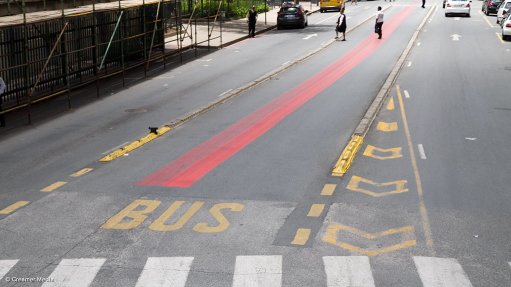
Photo by: Duane Daws
Compensation will be paid to minibus taxi operators affected by the next phase of the Rea Vaya Bus Rapid Transit (BRT) system, the City of Johannesburg said on Monday.
Owners who will have their vehicles scrapped to make way for the R2.2-billion Phase 1C BRT project, will share more than R805-million in compensation when a company to operate the new route is established, the city said in a statement.
"Yes, of course, there is a plan in place to raise the money for compensation," the city’s executive director for transport, Lisa Seftel, said.
"The number of minibus taxi owners who will be affected by the third phase is still to be finalised in the engagement and negotiation with the minibus taxi industry.
"Once these negotiations are concluded, there will be a handover, or transition period, during which a bus operating company is set up and compensation can be paid out," she said.
The 17 km Phase 1C route – along Louis Botha Avenue, between the Johannesburg inner city, Alexandra and Sandton – is expected to start running by October 2018.
The bus operating company will consist mainly of minibus taxi owners. The majority are members of the Alexandra Taxi Association and the Alexandra, Randburg, Midrand and Sandton Taxi Association.
The minibus taxi operators will relinquish their taxi operating licences and become shareholders of the new company.
Some of the minibus drivers are expected to be trained to operate the 141 articulated and rigid BRT buses on the route.
Privately-owned public bus company Putco, which operates on the route, may be expected to have a shareholding in the still-to-be-formed company.
The removal of minibus taxis and buses from the Phase 1C route will contribute to reduced traffic congestion and a cleaner environment, Seftel said.
Two bus operating companies have been established since the BRT system was introduced in Johannesburg in 2009.
The two 12-year agreements have resulted in about 500 minibus taxis being scrapped and minibus taxi operating licences relinquished.
The affected associations and the South African National Taxi Council did not respond to requests for comment.